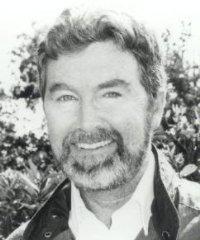Samuel Johnson Quotes - Page 7

It very seldom happens to a man that his business is his pleasure.
Samuel Johnson (1851). “The beauties of Johnson: choice selections from his works”, p.33
Samuel Johnson (1825). “The Works of Samuel Johnson, LL.D.”, p.499
Oliver Goldsmith, Tobias Smollett, Samuel Johnson, William Shenstone (1861). “Poetical Works of Oliver Goldsmith, Tobias Smollett, Samuel Johnson and William Shenstone”
Samuel Johnson (1807). “Dr. Johnson's Table-talk: Containing Aphorisms on Literature, Life, and Manners, with Anecdotes of Distinguished Persons, Selected and Arranged from Mr. Boswell's Life of Johnson”, p.59
Samuel Johnson (2014). “The Letters of Samuel Johnson, Volume II: 1773-1776”, p.360, Princeton University Press
Samuel Johnson (1798). “Dr. Johnson's Table Talk: Containing Aphorisms on Literature, Life, and Manners; with Anecdotes of Distinguished Persons, Selected and Arranged from Dr. Boswell's Life of Johnson”, p.126
Thomas M. Curley, Samuel Johnson (1998). “Sir Robert Chambers: Law, Literature, and Empire in the Age of Johnson”, p.125, Univ of Wisconsin Press
Samuel Johnson, Hester Lynch Piozzi, James Boswell (1804). “The beauties of Samuel Johnson, LL. D.: consisting of maxims and observations, moral, critical, and miscellaneous: to which are now added biographical anecdotes of the doctor, selected from the works of Mrs. Piozzi;--his Life, recently published by Mr. Boswell, and other authentic testimonies; also his will, and the sermon he wrote for the late Doctor Dodd”
Samuel Johnson (1784). “The Rambler: In Four Volumes..”, p.128
In James Boswell 'The Life of Samuel Johnson' (1791) vol. 1, p. 441 (20July 1763)
Samuel Johnson, Hester Lynch Piozzi, James Boswell (1787). “The Beauties of Samuel Johnson, LL.D.: Consisting of Maxims and Observations, Moral, Critical, and Miscellaneous, to which are Now Added, Biographical Anecdotes of the Doctor, Selected from the Late Productions of Mrs. Piozzi, Mr. Boswell, ...”, p.101
Samuel Johnson (1824). “The works of Samuel Johnson”, p.431
Don't tell me of deception; a lie is a lie, whether it be a lie to the eye or a lie to the ear.
Samuel Johnson (1836). “Johnsoniana; or supplement to Boswell; being Anecdotes and sayings of Dr. Johnson, etc”, p.222
The natural flights of the human mind are not from pleasure to pleasure, but from hope to hope.
Samuel Johnson (1820). “The Rambler”, p.8
Samuel Johnson (1810). “The works of Samuel Johnson, LL.D.: With An essay on his life and genius”, p.130
Samuel Johnson (1787). “The Works of Samuel Johnson, LL.D.: Together with His Life, and Notes on His Lives of the Poets, by Sir John Hawkins, Knt. In Eleven Volumes ...”, p.14
Samuel Johnson, Elizabeth Carter, Samuel Richardson, Catherine Talbot (1825). “The Rambler: A Periodical Paper, Published in 1750, 1751, 1752”, p.7
To hear complaints is wearisome alike to the wretched and the happy.
Samuel Johnson, Abraham Raimbach, Robert Smirke (1819). “Rasselas”, p.133
Samuel Johnson (1810). “The works of Samuel Johnson, LL.D.: With An essay on his life and genius”, p.406
Samuel Johnson, Roger H. Lonsdale (2006). “Samuel Johnson's Lives of the Poets”, p.117, Oxford University Press






